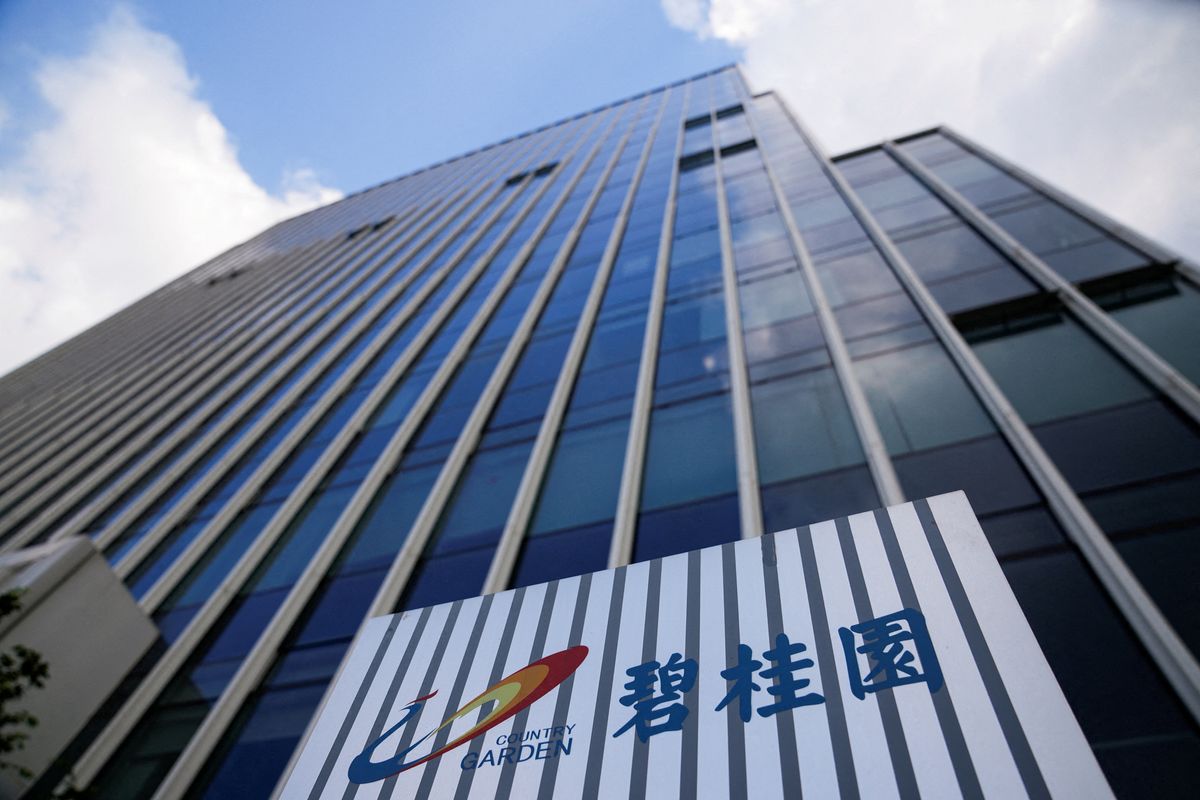Country Garden's default risk grows with missed interest payments and net loss projections
Country Garden is one of China's biggest property developers. It’s also one of the few private developers that hasn’t defaulted on any debt yet.

A few minutes every morning is all you need.
Stay up to date on the world's Headlines and Human Stories. It's fun, it's factual, it's fluff-free.
The backstory: China's real estate market is a huge part of the economy, making up as much as 30% of the country's GDP. But things have been on the rocks after some of the big players in the real estate sector, like Evergrande, started racking up huge debts they weren’t able to pay. In fact, Evergrande's first default almost two years ago set off a domino effect of defaults across the industry.
Country Garden is one of China's biggest property developers. It’s also one of the few private developers that hasn’t defaulted on any debt yet. Back in 2007, it hit the market with a record US$1.7 billion IPO in Hong Kong. Fast forward to this year – in March, Yang Huiyan took over for her father, Country Garden’s founder, as chairman. But this year's first half saw Country Garden slip from first to fifth place in terms of sales, according to the China Index Academy.
More recently: Last week, some new data showed that China has entered a phase where prices are generally dropping, which is called deflation. This hasn't happened for over two years. At the same time, the goods China exports took a big hit, falling by 14.5% in July compared to the previous year. And the things China imports from other countries also dropped by 12.4%.
On top of all that, Moody's, a credit rating agency, lowered Country Garden's rating earlier this month. This came shortly after the company canceled a planned share sale at the end of July and also warned it was expecting a net loss in the first half of this year. The downgrade was prompted by worries about the company's ability to handle its financial challenges, like accessing funding and repaying its debts, especially with a lot of payments coming due over the next year.
The development: News came out last week that Country Garden missed payments on two loans in US dollars, causing more uncertainty about the company’s health. If these payments aren't sorted out within 30 days, it's possible that it might face its first-ever situation of public default. But that's not all – some of Country Garden's bonds, valued in Chinese yuan, were actually stopped from being traded in Shanghai and Shenzhen because their value dropped by over 20%.
The company has warned it expects a net loss in the first half somewhere between 45 billion and 55 billion yuan (about US$6.2 billion to US$7.6 billion). At the same time, Yang, who is one of China's richest women, is also feeling the pressure. According to Bloomberg, she's lost a lot of her money over the past two years, more than any other billionaire globally. Her net worth has plummeted by around 84% since June 2021, which means she lost over US$28 billion. Now, she's sitting at a net worth of US$5.5 billion.
Key comments:
“Any default would impact China’s housing market more than Evergrande’s collapse as Country Garden has four times as many projects,” said Bloomberg Intelligence analyst Kristy Hung in a report Wednesday. “Any debt crisis at Country Garden will have a far-reaching impact on China’s housing market sentiment and could significantly weaken buyer confidence on solvent private developers.”
“If Country Garden, the biggest privately owned developer in China, goes down, that could trigger a crisis in confidence for the property sector,” said Edward Moya, a senior market analyst for Oanda.
“The company will actively consider taking various countermeasures to ensure the security of cash flow,” said Country Garden in an exchange filing on July 31. “Meanwhile, it will actively seek guidance and support from the government and regulatory authorities,” it added.
“The downgrade reflects our expectation that Country Garden’s credit metrics and liquidity buffer will weaken due to its declining contracted sales, still-constrained funding access and sizable maturing debt over the next 12 to 18 months,” said Kaven Tsang, a senior vice president at Moody’s, in a statement.




Comments ()